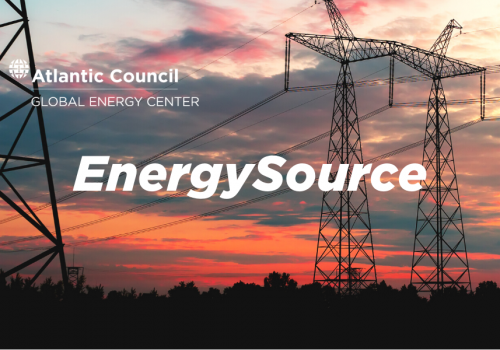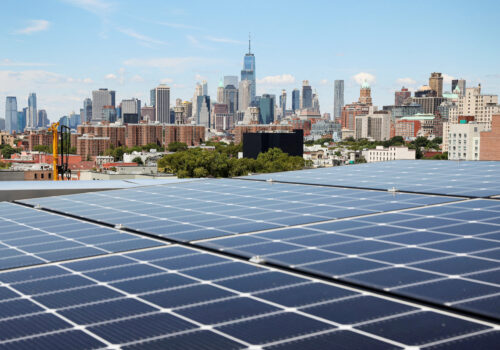Analysis ahead of next month’s COP29—often called a “finance COP”—focuses largely on increasing the funds available to poorer countries to address climate change. However, this misses a key point: that market conditions in recipient countries are a critical determinant for the success of such climate efforts.
Fighting climate change requires trillions of dollars globally for low- or zero-carbon technologies, for measures to adapt to changing sea levels or weather patterns, and to establish more resilient infrastructure. The International Energy Agency (IEA)’s Net-Zero Roadmap to keep global temperature rise under 1.5 degrees Celsius states that the world has to invest $4.5 trillion annually by the early 2030s to be on a path toward achieving this goal. This same report notes that “annual concessional funding for clean energy in emerging market and developing economies will need to reach around $80-100 billion by the early 2030s.”
STAY CONNECTED
Sign up for PowerPlay, the Atlantic Council’s bimonthly newsletter keeping you up to date on all facets of the energy transition.
For years there have been repeated calls for industrialized countries to foot much of the bill for lower-income countries. However, such transfers—even if they can be agreed to and realized—would be inadequate. Moreover, while the World Bank and other international financial institutions can be mobilized to boost funding levels, experts predict serious shortfalls will remain and call for greatly increased private sector engagement.
Governments and civil society groups have seized on public-private partnerships as the answer to addressing these shortfalls. Such partnerships can be instrumental in combating rising carbon emissions and their impacts—not just in rich industrialized counties, but also in many of the emerging market economies that now account for much of the world’s annual carbon emissions.
However, because these partnerships involve the private sector, market factors are key in determining if, where, and how such partnerships can be realized. The same market factors that make a country attractive to domestic or foreign investment in general will affect their ability to attract and mobilize capital for projects to build a more sustainable, lower-carbon future.
If a country has problems attracting or keeping capital in general, these same problems will affect its ability to attract or keep the funds, human capital, and technologies needed for new renewable power generation systems, more efficient electrical grids, and other climate-aligned projects.
The exact factors vary by country, but years of working with highly industrialized, emerging market, or lower-income countries point to some very basic, common concerns and how they can be addressed.
The first is to recognize that every country competes globally to attract and keep capital. Political and business leaders work to sell their country and its market to investors. But when the corporate, banking, or government leaders from country X finish their presentations, counterparts from country Y come in soon after to say why their project deserves backing instead.
A second factor is a country’s overall reputation as a place to do business. How strong is the rule of law? What is the country’s reputation regarding corrupt business practices? Are contracts—whether with the government or private entities in the country—kept and fairly enforced? How freely can capital enter or leave? There is a saying that when it comes to oil or gas ventures, “good rocks are not enough.” This same principle applies when it comes to building solar or wind power facilities as well.
Moreover, non-governmental organizations (NGOs) and other institutions from these countries that are looking for international backing for their climate-related proposals will be affected by these same concerns. A women’s group or civil society organization operating in a country with a poor international business reputation will face additional hurdles compared to those operating in countries with good transparency, low corruption levels, and well-functioning regulatory and judicial systems.
The good news is that once recognized, these issues can be addressed. International financial institutions, bilateral and regional development assistance organizations, NGOs, and private sector and academic experts can provide willing governments with insights and suggestions. Governments may already know what they should do and have just been slow in acting. Global realities, however, require recognizing that projects to slash carbon emissions or make their countries better equipped to deal with climate change are not immune from the factors that attract or deter funding for other projects.
Taking countries’ market realties into account will be essential for discussions in Baku to achieve the necessary results for global climate efforts.
Robert Cekuta is a former principal deputy assistant secretary for energy at the State Department and was U.S. ambassador to Azerbaijan.
RELATED CONTENT
OUR WORK

The Global Energy Center develops and promotes pragmatic and nonpartisan policy solutions designed to advance global energy security, enhance economic opportunity, and accelerate pathways to net-zero emissions.
Image: Wind turbine in Nagercoil, India. (John Milin, Unsplash)




